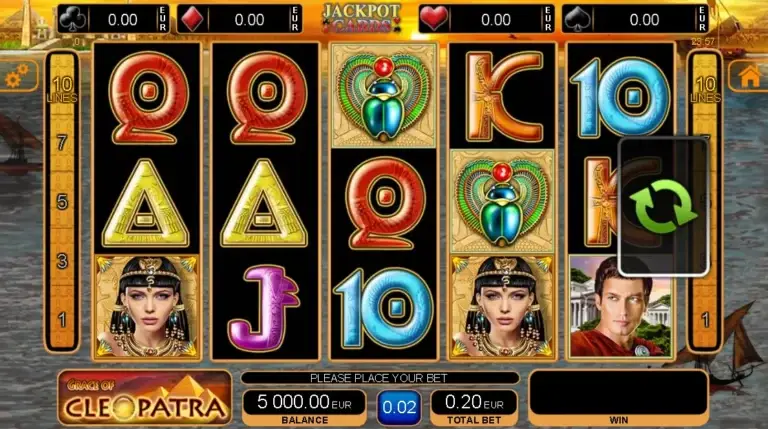Gambling is an industry of gambling entertainment based on participation in games with unpredictable outcomes and financial risk. The main focus is on in-game randomness. A classic example is roulette: no one can predict in advance on which number the ball will stop. The structure of gambling covers thousands of mechanics: from slots with variable RTP to table games with fixed returns controlled by a random number generator.
Gambling encompasses not only traditional casinos. The mechanic is integrated into digital simulators, games with NFT drops, live dealers, and hybrid platforms with dynamic odds. This multi-level system is built around entertainment with the assumption of losses, where each bet represents an act of risk-taking for a potential win. The approach requires bankroll management, understanding of randomness principles, and no illusions about predicting the outcome.
Gambling and Betting: What Are They, Main Differences
The fundamental difference lies in the source of uncertainty. In gambling, the result is determined by an algorithm, while in betting, it depends on an external event (e.g., the score of a football match). Gambling operates on an internal model where the player interacts with the system. In betting, it involves wagering on the behavior of third parties (athletes, teams, etc.).
Gambling operates on pure chances. The result is determined either by RNG (in slots, baccarat, lottery) or by a probability table (in blackjack, dice, video poker). Betting uses bookmakers’ lines and odds system. For example, betting on the outcome of the “Juventus – Inter” match is based on analysis and assumptions, whereas spinning the slot machine’s reels in a casino follows no logic.
Mechanics vary in terms of engagement level, required skill, and risk level:
-
Casino games. Classics include roulette, blackjack, baccarat, poker. The basis is the built-in return-to-player percentage (RTP), which is regulated within 92–99%. It is based on cycles of outcomes and preset chances.
-
Slots. Multi-reel machines with multifunctionality. The most popular ones are Book of Dead, Starburst, Gates of Olympus. They feature bonus rounds, jackpots, and adjustable volatility.
-
Lottery. Format with low probability and potentially high winnings. The tool is more often used for gamification rather than regular play.
-
Dice. Fast simulators with dice rolls and predictable result pools.
-
Hybrids. Platforms with live dealers, dynamic tables, game shows, mini-games (Aviator, Crash), NFT mechanics, and progressive bank.
Bets as Opposites: How Betting Differs and How the Process Works
Unlike gambling, betting is about event prediction. A player places a bet on an outcome that depends on external circumstances. It involves odds set by the bookmaker’s analytical department. Betting includes working with lines, margins, express systems, totals, handicaps, and other options. Success in betting requires analysis, regular tracking of statistics, understanding sports specifics, and knowledge of bookmaker rules. It involves betting strategy, bankroll calculation, and risk management.
Motivation and Goals: Gambling as Thrill, Betting as Prediction
Players engage in gambling for entertainment, adrenaline, and the sense of randomness. The focus is on visuals, mechanics, and a sense of involvement. Sports betting attracts pragmatists who want to implement an analytical approach. The difference lies in the logic of interaction: gambling appeals to emotions, while betting appeals to reason.
In gambling, winning is more of an exception than a rule. In betting, it’s the result of a strategic sequence. In a casino, predicting the outcome is impossible, while in betting, probability can be calculated based on data. However, both formats require clear financial management, self-restraint, and discipline.
Payout Mechanics and RTP Control: How the Mathematical Model Works
The Random Number Generator (RNG) determines the outcome of each session. The Return to Player (RTP) parameter shows the average return over the long run. For example, a slot with 96% RTP theoretically returns 96 coins per hundred bets. Deviations are possible due to volatility. In betting, the bookmaker’s margin directly affects potential profit. Betting odds are measured through the average coefficient. For instance, with a 1.90 coefficient on both sides, the actual return is around 95%. Thus, both gambling and betting create an inherent advantage for the platform, ensuring the operator’s profitability.
Skill, Strategy, and Intuition: Factors Influencing Outcomes in Different Formats
Gambling is a realm of chance where player intervention is limited. Neither slots nor roulette react to actions. However, games with a strategic element like blackjack or poker allow for influence. In poker, success often depends on reading opponents, calculating probabilities, and managing pace. Gambling is an area where skill partially influences outcomes. Betting requires systematic work. A successful player builds a strategy: sets limits, forms forecast models, uses value betting. Here, skill is critical: intuition, mathematical approach, understanding of line movements, and bookmaker vulnerabilities shape the outcome.
Risk Role and Bankroll Management: Where the Probability of Loss Is Higher
Gambling is always a game against the casino. RTP never exceeds 100% and usually fluctuates within 94–97%. The advantage remains on the operator’s side. Risk is embedded in the mechanics and cannot be eliminated. Some platforms, like Stake, BC.Game, allow regulating slot volatility levels, but in the long run, mathematics favors the system. Betting provides more control. Players can select events with inflated odds, avoid risk through live bets, use statistics. However, discipline in bankroll management is essential in both systems. Errors in fund distribution lead to rapid losses.
Control, Regulation, and Legality: Where and How the Industry Operates
Licenses (e.g., Malta, Curacao, UK) oversee RNG fairness, player protection, RTP compliance, and transaction security. Casinos must publish payout terms, use certified slots, and meet KYC requirements. Betting also requires licensing. Bookmakers undergo financial audits, build reserves, and comply with local regulators’ requirements. The difference lies in the focus: gambling is checked for algorithm fairness, while betting is scrutinized for odds transparency and absence of manipulation.
Entertainment or Investment: Motivational Differences in Formats
Gambling is primarily entertainment. Players enter casinos for emotions, visuals, atmosphere, and thrill. Winning is an additional bonus, not the goal. Gambling is an experience. Graphics, animation, bonus modes, live dealers matter. Betting is seen as an attempt to capitalize on knowledge. Models are built, scripts are implemented, markets are analyzed. The format requires patience, systematic approach, and analytical thinking. However, it is not devoid of risk. Mistakes, line biases, emotional decisions quickly nullify success.
Gambling: What Is It Exactly?
Gambling is a model built on probability and randomness. Each spin, roll, card, ball is a separate event. Betting is a forecasting system. Understanding the differences allows for a conscious choice. Some find pleasure in colorful slots, others in numbers, lines, and calculations. Recognizing the distinction between mechanisms builds resilience to addiction, helps manage bankroll sensibly, and choose platforms with reliable licenses. Gambling is not a path to earning but a way to have fun in managed risk. Betting is an analytical game with expectations. Both require discipline, understanding of rules, and restraint from impulsive decisions.



